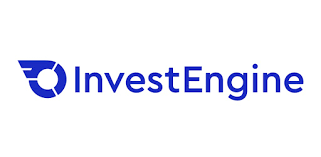The amount of savings products and investment vehicles available to us can be extremely overwhelming. Knowing what options are the best for you can be tricky, given how many potential options are available. One such option is an easy access savings account. But are they worthwhile opening for people over 50? Do they suit people in retirement, or should only those with a salary use them?
We'll answer those questions by identifying everything you need to know about these products. By the end of this article, you'll know whether this is a savings product that suits your needs or if you should look elsewhere.
Discover stocks and shares ISAs from the UKs leading providers. Click on your chosen provider to get started!
What exactly is an Easy Access Saver?
An Easy Access Saver is an account where customers can invest their money and earn a specified interest rate. The main distinguishing feature of an Easy Access Saver compared to other savings products is the ability to withdraw money quickly and easily with no penalties for withdrawals.
They vary from regular current accounts due to the better annual equivalent rate (AER) you can earn.
Pros of an Easy Access Saver for pensioners
Easy access
Of course, the most significant advantage of an Easy Access Saver is that your cash is easy to access. This feature is fantastic, as you may need access to your money quickly for everyday living costs now that you're no longer earning a salary. For example, while you may be receiving an income from your pension, you can use cash from an Easy Access Saver to help meet any shortfall between your pension income and outgoings. Being able to access your savings with ease can be imperative at times.
Most importantly, the bank doesn't penalise you for making any number of withdrawals. For example, other products like fixed-rate bonds can charge you a fee or reduce your interest for the months you take out funds.
Known amount of interest
Some Easy Access Saver accounts will offer a headline amount of interest that you can earn on your savings. This is an excellent feature if you're trying to figure out how much money your savings will make. It can help you budget for the future more, which is particularly useful given that you do not have your monthly salary. Products like Stocks and Shares ISAs will have an unknown amount of interest.
Bonus rate offers
Many banks or building societies offer introductory offers on their instant access accounts. These offers usually last a year and mean you increase the savings interest you can earn in that time. Of course, banks will often advertise the higher interest rate to lure you in, but at least you'll benefit!
The key is to note down when that higher interest fixed term ends. When it does, it could be worthwhile to look at transferring your money into other easy access or regular savings accounts. Or, you could see what offers are available to existing customers.
Can be tax-free
Depending on your circumstances and income tax bracket, the amount of interest you earn on your savings within an Easy Access Saver account might be tax-free. This will be down to how much interest you make across your portfolio of savings accounts.
However, most people (as basic-rate taxpayers) will fall under the £1,000 personal savings allowance in any tax year. If you are in a higher rate tax bracket, that amount drops to £500 before you start paying tax on interest earned.
Open multiple accounts
Unlike Cash ISAs or Stocks and Shares ISAs, one of the most significant benefits of Easy Access Saver accounts is that you can open several at once. If you find an account with an attractive interest rate, you can pay into it whenever you like or need. A fantastic advantage if you already have a good savings habit! This is especially true if you find a higher rate savings account after investing money with a bank that no longer offers a competitive AER.
Small to large amounts to invest
Perhaps one of the most significant disadvantages to Cash ISAs and Stocks & Shares ISAs is that they limit the amount you can invest in them per year. As of the 2022/23 tax year, this limit is £20,000. That limit will be far too small if you have significant savings to invest.
Easy Access Saver accounts can be helpful because some allow you to invest a lot of cash. However, importantly, the same accounts are still open if you have a much smaller sum to invest. In addition, most of these products have a low minimum deposit needed, so you do not have to build up a large lump sum first to apply.
In branch vs online banking
Many of these products have the flexibility for you to manage them in a branch or through online banking. While bank and building society branches are becoming rarer these days, some of us still want to talk face to face with a bank manager. Having the ability to discuss your account with an advisor can be a huge source of comfort to some.
However, those who are happy using online banking to manage their finances will be glad of the capability to do so through an app or website. That flexibility is not always an option for an increasing amount of notice accounts or several other bank accounts, making this a benefit not to overlook.
Cons of an Easy Access Saver for pensioners
Historically low interest
One reason Easy Access Saver accounts are not always suitable is that they historically have had low interest rates. Providers set the interest rate, but they will rarely beat other forms of savings accounts or bonds available on the market. Even the top rates are minimal.
A low interest rate may be all you need if you want somewhere safe to put your cash and let it earn nominal interest but keep that all-important easy access. However, that interest rate won't make your savings grow to the amount you require.
Potential amount limit
While many Easy Access Saver accounts have very high limits, some will have set amounts that may be too low for you to consider. You may even find that the products with the highest amount limits are too low for you. So while some accounts allow you to save millions, it is still important to bear these limits in mind.
Rates can change
Easy Access Saver accounts offer variable interest rates. The result is that while you may open an account for a certain amount of interest, the provider may change what interest rate it offers a few months down the line.
The likelihood is that the variable rate will change for the worse, not the better. This is not always the case, though it is more common for them to come down. That said, the Bank of England has been increasing its base rate recently, so banks may start to increase the rate they offer.
In short, it pays to stay on top of the interest rates available elsewhere. If you don't, you may not get the highest return possible or the rate you had initially signed up to.
Inflation
Inflation can quickly eat away at any money you make on your savings with an Easy Access Saver account. Owing to the usually low interest rates these accounts offer, you may find that inflation has eaten away at the purchasing power of your original investment over a year.
How much should I keep in instant access savings?
There is no one-size-fits-all answer about how much you should be putting away into an instant access account. It is solely dependent on where the rest of your assets are saved or invested and how much income you receive. Additionally, you need to consider your outgoings. Regularly saving into an account is often a worthwhile endeavour, but not to the extent that you have to look into equity release from your home to cover essential bills.
Getting the balance right when it comes to instant access versus the level of return you receive is difficult. It makes deciding how much to put away into a savings account a tricky decision to make. Speaking with a financial advisor - whether you are approaching or already in retirement - can be helpful.
They'll take a holistic view of your financial situation and can direct you accordingly. They'll appraise your income versus expenditure and consider other savings, investments, life insurance policies and assets you have elsewhere. As a result, if you are still keen to have an instant access savings account, they can suggest how much to deposit in one.
Is it better to keep my money in an instant access or high-interest savings account?
There is no right or wrong answer to this question. For example, just because it is better for one person to keep a large part of their savings in a high interest account, it is not necessarily the best approach for you. Or vice versa.
Generally speaking, if you have a high income, you are - or can be - more tolerant of risk. That means you are also more capable of withstanding financial shocks. Shocks can be anything from your boiler needing replacing to a spouse sadly passing away. With a higher income, you are likely to be able to cover unforeseen expenses from your salary or pension. Conversely, if your income is lower, you may need to dip into your savings to cover unexpected costs.
The more unlikely you are to need to dip into savings, the more suitable a high-interest savings account is for you. However, that's not the only reason you may want to have an easy access savings account. Though they earn paltry interest rates, they do at least earn something.
What other type of savings account could I use?
Several other account types may suit you - it may even be possible to open some as joint accounts. To summarise the options available, they are:
Regular saver
A regular savings account can offer a higher interest rate than an instant access one. However, you can usually only deposit a low initial amount first - meaning you are earning that higher interest on (potentially) a much smaller amount. That said, setting up a direct debit into one of these accounts could be a better option if your monthly pension income is higher than you need, and you do not want it languishing in a current account.
Fixed-term accounts
Fixed-term savings are only really suitable if you're happy to lock away your money for a set period. So if you already have a 'rainy day fund' that you can access when you need it, a fixed-term account or bond could be suitable. The benefit of tying up your money for longer is usually a higher interest rate.
ISAs
There are two types of ISAs - Cash and Stocks & Shares. With a Cash ISA, you can invest a set amount of money for a set interest rate. With a Stocks & Shares ISA, you can invest a certain amount of money in stocks or shares with the intention of your equity growing. For either, the growth you achieve is not subject to tax.
Children’s savings accounts
If you want to minimise the tax your estate will have to pay upon your death, children's savings accounts could be an option. You won't benefit from a children's savings account yourself, but your children or grandchildren could do - while also reducing future tax outgoings. Children's savings accounts usually attract higher interest rates than adult ones.
What is a good way to make money from my savings account?
The best thing you can do to start making money from your savings account is first to pay off any credit cards or high interest-bearing debt. Credit cards can attract substantial interest rates on outstanding balances, dwarfing anything you are likely to make on a savings account. While taking this action will depend on individual circumstances, if you have high interest-bearing debt, the current market conditions mean that you will likely save more money by paying off that debt first.
After that, you can start to look at making money from savings accounts. One of the fundamental rules for using them optimally is to stay on top of the interest rates you are currently earning. Compare them regularly to the rest of the market. Ensure that you have not been transferred to a lower, less competitive rate. Note down whenever any bonus rate offers end. Know the rules for each account in terms of withdrawals.
Easy access accounts usually mean you can transfer as and when you want. So don't be afraid of moving your funds to a higher interest account when it is financially beneficial - usually after receiving your interest earnings.
Other investments
If, after researching all the easy access products or savings accounts, you are still not happy with the options available, other forms of investments could be suitable. It could be worth your while to investigate:
- Stocks and Shares
- Robo investing
- Alternative investments
- Bonds
- Cryptocurrency
All these investments and financial products come with risks - and rewards. Before investing in any of them, it is imperative to ensure they fit your risk profile so you don't risk losing money you cannot afford to lose. All investments can go down as well as up, so you need to accept that you may not get back everything you invest.
Are the best easy access savings accounts a suitable investment for pensioners?
Easy Access Saver accounts are suitable as long as the advantages fit your needs. However, if you find that the disadvantages make this a bad investment for you in your circumstances, it may be better to use other investment products.
Ultimately, the biggest drawback to these accounts is the low interest rates. They can be so small that there is not always a point in using them once you consider inflation. However, that is not a pensioner specific problem. It is a drawback for anyone. Despite this, some people need a savings account that allows them to make penalty-free withdrawals, which can make Easy Access Saver accounts an ideal product.







